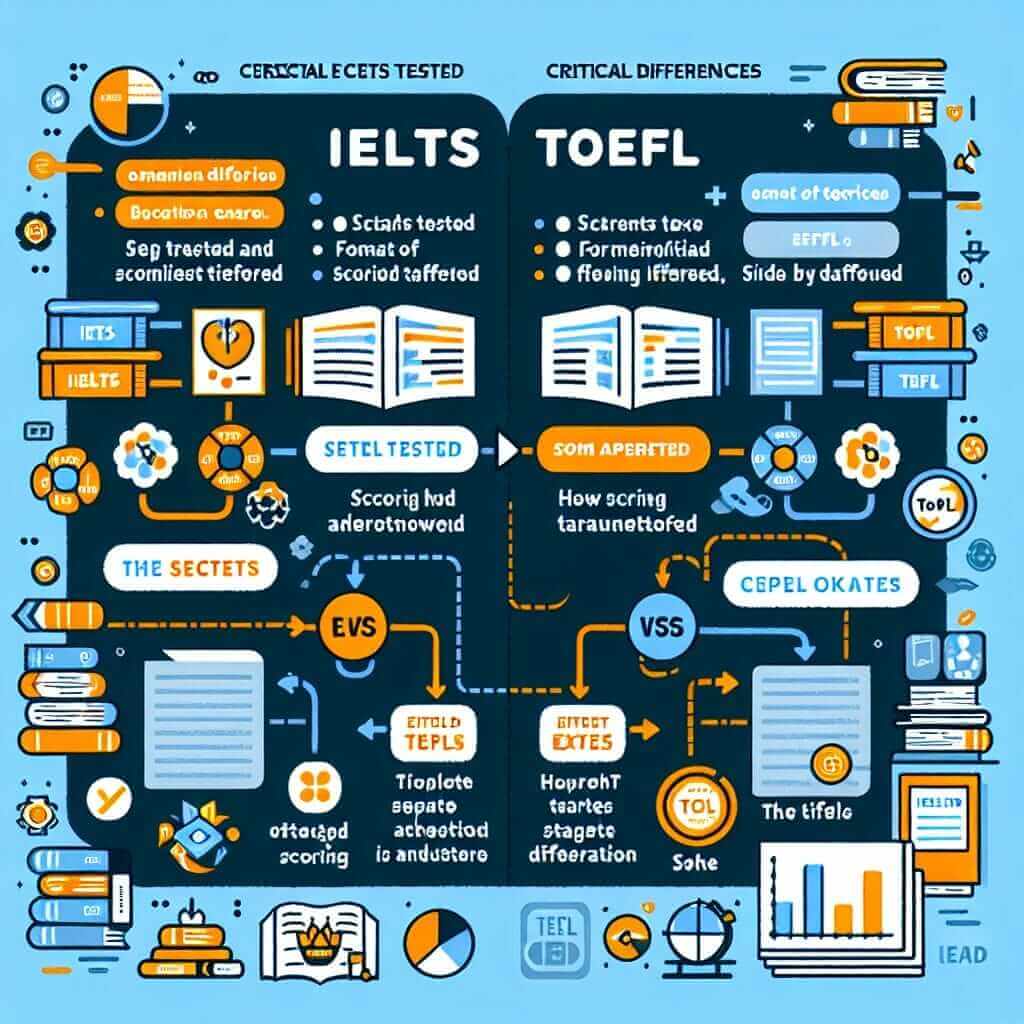As an IELTS instructor with over two decades of experience, I frequently encounter students who are curious about the similarities and differences between the IELTS and TOEFL exams, particularly the essay sections. While both exams assess your academic English writing abilities, there are some key distinctions. Understanding these nuances is crucial for success in your target test. This article delves into a comparative analysis of the IELTS and TOEFL essay tasks, providing insights to guide your preparation.
Unpacking the Essay Tasks: IELTS vs TOEFL
Let’s break down the specific essay components of each test:
IELTS Writing Task 2
In the IELTS, Writing Task 2 always requires you to write an essay. This essay is typically argumentative or analytical in nature. You’ll be presented with a social issue, argument, or problem, and asked to provide your perspective, supported by relevant examples and evidence.
Key Features of IELTS Writing Task 2:
- Essay Length: Minimum 250 words
- Time Allotted: 40 minutes
- Emphasis: Assessing your ability to present a clear and well-structured argument, supported by relevant examples and coherent reasoning.
TOEFL Independent Writing Task
The TOEFL Independent Writing Task is similar in structure to the IELTS Writing Task 2. You’ll be given a prompt that presents an opinion, and you’ll need to state your opinion and provide reasons and examples to support it.
Key Features of TOEFL Independent Writing Task:
- Essay Length: Minimum 300 words
- Time Allotted: 30 minutes
- Emphasis: Evaluating your ability to express your ideas in a clear, organized, and well-supported manner.
Spotting the Differences: What Sets Them Apart?
While the essay tasks on both exams share a common goal – to assess your academic writing skills – there are some crucial differences:
-
Essay Length and Time: The TOEFL Independent Writing Task requires a slightly longer essay (300 words) compared to the IELTS Writing Task 2 (250 words). However, the TOEFL provides you with 30 minutes, while the IELTS gives you 40 minutes. This means you need to manage your time effectively for both.
-
Range of Topics: Both exams cover a diverse range of essay topics. However, the IELTS tends to focus more on social issues, while the TOEFL may include more general or abstract topics.
-
Sources of Evidence: In the IELTS, you are primarily expected to draw upon your own knowledge, experiences, and observations to support your arguments. The TOEFL, on the other hand, may sometimes provide you with a short reading passage related to the essay prompt.

Similarities: Bridging the Gap
Despite the differences, there are key similarities in the skills assessed in both exams:
-
Clear and Coherent Writing: Both the IELTS and TOEFL place a premium on clarity, coherence, and logical flow of ideas. Your essay should be well-organized with a clear introduction, body paragraphs that develop your arguments, and a concise conclusion.
-
Grammatical Accuracy and Range: Both exams assess your grasp of English grammar and your ability to use a variety of sentence structures accurately.
-
Vocabulary and Tone: A strong vocabulary is essential for both exams. You should aim to use a range of vocabulary appropriate for academic writing, while maintaining a formal and objective tone.
Example Essay Prompt: A Comparative Look
Let’s analyze an example essay prompt that could appear on either the IELTS or TOEFL:
Prompt:
“Some people believe that technology has made our lives easier and more convenient. Others argue that technology has made our lives more complex and stressful. Discuss both views and give your own opinion.”
Approach for Both Exams:
- Introduction: Briefly introduce the topic and state your position.
- Body Paragraph 1: Discuss the view that technology has made life easier (provide specific examples).
- Body Paragraph 2: Discuss the view that technology has made life more complex (provide specific examples).
- Conclusion: Summarize the main points and restate your opinion in a clear and concise manner.
Tips for Success: Mastering the IELTS and TOEFL Essays
Here are some valuable tips to help you excel in the essay sections of both exams:
- Practice Regularly: Consistent practice is key. Write essays on a variety of topics to improve your speed, fluency, and confidence.
- Analyze Model Essays: Study high-scoring sample essays to understand the structure, organization, and language used.
- Seek Feedback: Have your essays reviewed by experienced teachers or tutors who can provide valuable feedback on areas for improvement.
- Manage Your Time: During the exam, allocate your time wisely for planning, writing, and revising your essay.
- Read Widely: Expand your vocabulary and knowledge base by reading extensively on a variety of topics. This will equip you with a wider range of ideas and examples to draw upon in your writing.
Conclusion: Your Path to Essay Success
In conclusion, while there are distinct differences between the IELTS and TOEFL essay tasks, both exams ultimately assess your ability to construct well-reasoned, well-organized, and grammatically accurate essays. By understanding these key distinctions and similarities, and by following the tips outlined above, you can confidently approach either exam and achieve your desired scores. Remember, consistent practice and a strategic approach are your allies in mastering the art of essay writing for both the IELTS and TOEFL.